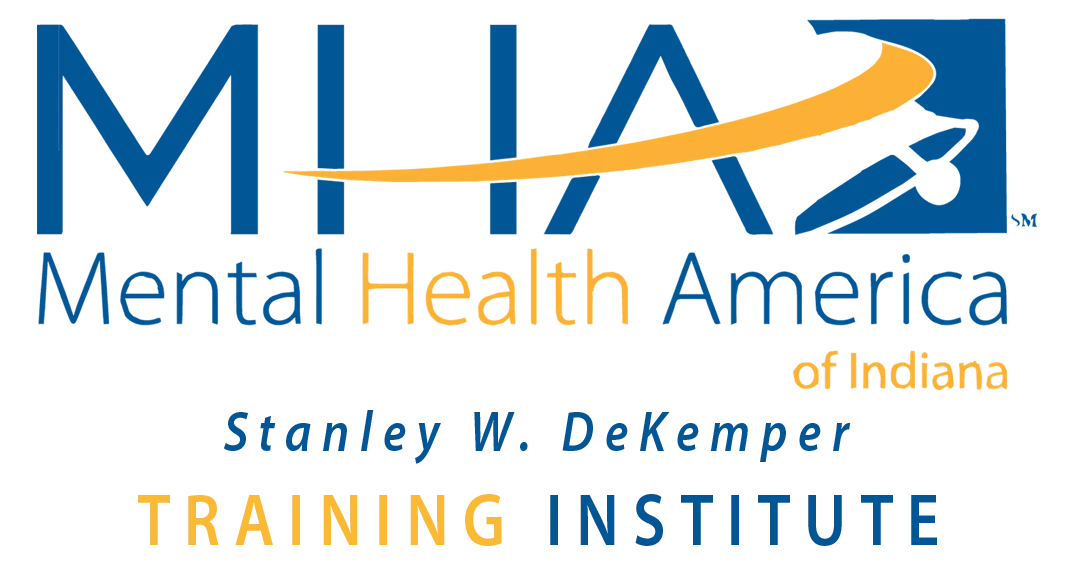Clinical / Treatment
Addiction Counseling Ethics
DESCRIPTION
The Addiction Counseling Ethics course is designed to enable participants to explore the unique ethical dimensions and issues that a clinician may encounter in the provision of addiction treatment. The training will focus on the legal and moral issues that may surface while providing addiction treatment services. Training topics will include the definition of addiction counseling Ethics, recognized ethical standards, ethical responsibilities of addiction treatment, guidelines for ethical decision-making, and ethics of professional development for addiction services.
LEARNING OBJECTIVES
- Gain an understanding of the three ethical considerations in the counseling profession
- Gain a basic knowledge of the five ethical principles in the counseling profession
- Gain a basic knowledge of the guidelines for ethical decision making
Duration
6 hours (one day)
CEU Credits
6
Presented by

Addiction Counseling Competencies
DESCRIPTION
Training is designed to familiarize the participant with the eight practice dimensions necessary for effective performance as an addiction’s counselor: clinical evaluation; treatment planning; referral; service coordination; counseling; client, family and community education; documentation; and professional and ethical responsibilities. These dimensions along with their associated 12 core competencies, as defined by the Substance Abuse and Mental Health Services Administration (SAMHSA), are the established national standards for addiction counseling practice. These standards are also utilized by state and national addictions counselor certification/license examinations. In this course, the student will develop entry level knowledge and skills across the eight practice dimensions that will help ready them for entering the addictions counseling field.
LEARNING OBJECTIVES
- Identify and describe the eight practice dimensions of addiction counseling
- Identify three service challenges and three potential service opportunities of each dimension
- List one skill associated with each dimension
- Describe how each dimension has at least one link to another dimension for the continuity of care
Duration
6 hours
CEU Credits
6
Presented by

Group Counseling Basics
DESCRIPTION
This interactive webinar covers an overview of group counseling through 4 objectives. This training is for persons who wish to know more about this mode of treatment, persons who currently provide group counseling or persons preparing to become more skilled in this service. This training meets training requirements for the CADAC credential and may help those wishing to prepare for the IC&RC ADC or AADC exam.
LEARNING OBJECTIVES
- Learn advantages & disadvantages to group therapy
- Explore Yalom’s 12 Therapeutic factors within group therapy
- Learn the stages of group development
- Explore group leadership styles
Duration
3 hours
CEU Credits
3
Presented by


Psychopharmacology of Substance Use
DESCRIPTION
This course will provide the learner with an introductory knowledge on the psychopharmacology of substance use disorders through online interactive learning experiences. In addition to the learning objectives, attendees will explore how the information shared in each learning module directly impacts their current professional role, as well as how gaining basic knowledge in the psychopharmacology of substance use disorder helps them to provide effective services to the individuals and their families.
LEARNING OBJECTIVES
- Develop basic knowledge neurochemical mechanisms and how psychoactive substances affect the brain and body.
- Develop basic knowledge of psychoactive substances, chemical classifications, and the increase of designer drugs
- Develop basic knowledge of the etiology of substance use disorder reviewing biological, psychosocial, and contextual factors.
- Develop a basic understanding of diagnostic categories/classifications and levels of substance use disorders.
Duration
6 hours (one day)
CEU Credits
6
Presented by

Understanding the Science of Addiction
DESCRIPTION
Participants will consider addictions and case examples from a variety of theoretical perspectives. Science-based approaches to addiction treatment and recovery will be highlighted and explored. This course will examine addictions from biological, psychological, social, and spiritual domains. Additionally, individual, family, and cultural perspectives will be explored. This course will emphasize familiarity with the current research in the addictions counseling field. The course is held 9a-4:30pm EST. You will be expected to be on camera, participate, and be available for all hours of the training.
LEARNING OBJECTIVES
- Introduce the history of psychoactive substances according to class
- Examine the biopsychosocial factors involved in protective and risk factors
- Understand addiction as a brain disease
- Understand neuroplasticity and recovery
Duration
6 hours (one day)
CEU Credits
6
Presented by

Evidence-Based Practices
DESCRIPTION
This course will familiarize participants with SAMHSA’s Evidence-Based Practices (EBP) addiction resources and afford the participant opportunities to examine several addiction EBPs and assess the clinical application of these EBPs.
LEARNING OBJECTIVES
- Understand the definition of evidence-based practices
- Explore the differences between evidence-based practices and emerging practices
- Gain knowledge in the area of pharmacotherapy and medication assisted treatment
- Explore current evidence-based practices utilized in substance use disorder treatment programs
Duration
6 hours (one day)
CEU Credits
6
Presented by

HIV/AIDS Education & Risk Reduction
DESCRIPTION
Training assist addiction professionals in helping their clients identify “high risk” activities/life styles that may increase the risk of exposure to HIV and/or the risk of transmitting HIV to others. The goal of this training is to improve the ability of addiction professionals in a variety of settings to support individuals in making behavior changes that will reduce their risk of acquiring and/or transmitting HIV as well as other health related conditions such as Hepatitis C.
LEARNING OBJECTIVES
- Understanding HIV
- Understanding Risk
- Understanding AIDS
- Understanding Hepatitis C
Duration
6 hours
CEU Credits
6
Presented by

M.A.T. Education
DESCRIPTION
This three-day interactive training provides participants with a detailed understanding of medication used to assist with substance use disorders. 35 hours of distance (on-line) learning is a component of this course that is provided with admission purchase. It is highly encouraged this distance learning be completed prior to the ‘live’ training.
LEARNING OBJECTIVES
- Become familiar with the primary medications associated with the treatment of substance use disorder
- Develop an understanding of the role that medication can play in an individual’s recovery process from substance use disorder
- Increase ability to use treatment matching principles for individuals in recovery from substance use disorders
- Become familiar with a variety of recovery supports available to individuals’ entering recovery from substance use disorders
- Provide an overview of professional responsibilities in providing medication assisted treatment
- Develop a connection with other professionals working in the medication assisted treatment community
Duration
18 hours instructor-led (three days), and 35 -hours of self-paced on-line learning
CEU Credits
53
Presented by



